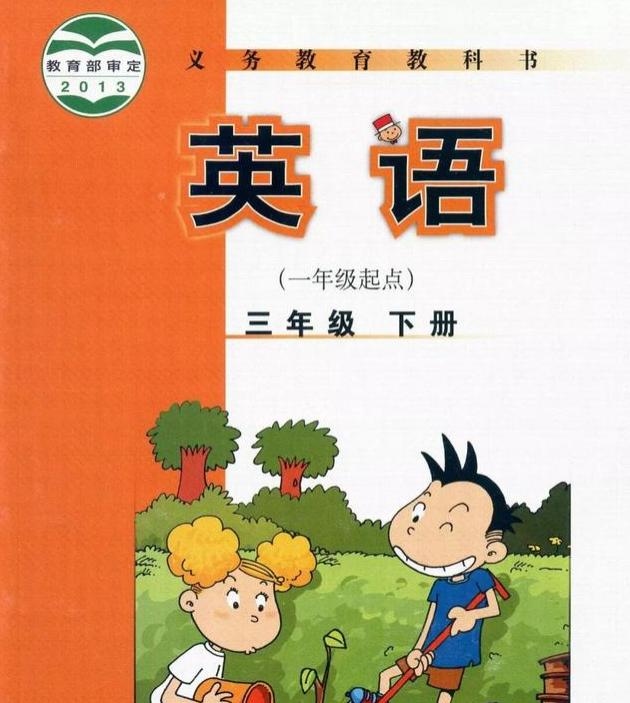视频推荐
- 1、英语视听资料:外教英语 (P183. Picnics 野餐)[28:36]
- 2、英语绘本:野餐相关词汇和句子。宝妈奶爸辅导孩子英语变简单了[03:26]
- 3、【入门英语】给孩子的第一节单词课,户外野餐相关的20个常见单词[04:05]
- 4、去外面野餐会用到的英文[06:01]
- 5、粉猪妹英语版S1ep15: Picnic--去野餐[04:24]
- 6、「不用词汇书背单词」Episode 247:野餐[01:13]
步骤/方法

外研一起三年级下册Module 1 知识汇总
一、词汇
nice友好的,亲切的;讨人喜欢的
always总是,一直
a bit稍微,有点儿
shy羞怯的,胆怯的,腼腆的
e-card电子贺卡 quiet文静的
another另一个,再一个
him(宾格)他
parrot鹦鹉
twenty二十
helpful肯帮忙的;有用的
maths数学;数学课
plus加,加上
more更多的;另外的;附加的
二、句子
1. Look! The elephant is clever. 看!大象是聪明的。
2. This is Maomao. She’s very nice. She always helps people. But she’s a bit shy. 这是毛毛。她很友善,总是帮助人们,但是她有点害羞。
3. This is Xiaoyong. He’s very clever. He can make e-card. But he’s a bit quiet. 这是小勇。他很聪明,会做电子贺卡,但是他有点内向。
4. I’ve got another friend. He’s very, very naughty. But we all like him. 我有另一个朋友。他非常非常调皮,但是我们都很喜欢他。
5. This little girl can’t do her maths. I’m going to help her. 这个小女孩不会做数学题。我要去教她。
6. — What’s ten plus ten? 十加十是多少?
— Twenty. 二十。
三、句型结构
① 描述某人性格特点
主语 + be动词 + 形容人性格特点的形容词.
eg: Mark is clever but a bit naughty. 马克很聪明但是有点调皮。
Alice is beautiful and quiet. 爱丽丝很漂亮,还有点内向。
② 描述自己打算帮助某人
I’m going to help ...
eg: I’m going to help my mother. 我打算帮助我妈妈。
I’m going to help Tom. 我打算帮助汤姆。
外研一起三年级下册Module 2 知识汇总
一、词汇
about关于
river河
wide宽的,宽阔的;宽广的
old年代久的,古老的
clock钟,时钟
wheel轮子
round圆形的;球形的
will将,将会
you’ll = you will 你将
tower塔
bridge桥
二、句子
1. This house is big, but that one is small. 这座房子是大的,但是那座房子是小的。
2. This tree is big, but that one is small. 这棵树是大的,但是那棵树是小的。
3. Look at this book. It’s about London. I’m from London. 看这本书,是关于伦敦的。我来自伦敦。
4. It’s the River Thames. It’s very long and wide. 它是泰晤士河,它很长很宽。
5. The London Eye is like a big, round eye! 伦敦眼像一个大大的,圆圆的眼睛。
6. You’ll see Tower Bridge. 你将会看见伦敦塔桥。
7. In this park, you’ll see a wide river. 在这个公园,你将会见一条宽宽的河。
三、句型结构
① 描述某物特点
主语 + be动词 + 形容词.
eg: The Thames River is very long and wide. 泰晤士河非常长非常宽。
The Big Ben is big and tall. 大本钟很大很高。
② 描述你将会看见......
You’ll see ...
eg: You’ll see many flowers in the park. 在公园里,你会看见很多花。
You’ll see a tall building. 你将会看见一个很高的建筑。
外研一起三年级下册Module 3 知识汇总
一、词汇
won\\\\\\\\\\\\\\\\\\\\\\\\\\\\\\\\\\\\\\&39;t = was not不是
fun有趣的事
二、句子
1. They were very young then! But they are very old now. 他们那时非常年轻!但是现在他们很老了。
2. — How old were you? 你那会几岁?
— I was two. 我那会两岁。
3. Your hair was very short then. 那时你的头发非常短。
4. I’m in London now. And I was in Beijing yesterday. 现在我在伦敦,昨天我在北京。
5. In the holidays, Mum and Dad weren’t in Beijing. 假期里,妈妈和爸爸不在北京。
6. Look! This is my father. He was thin then. But now he is not. 看!这是我爸爸。那时他很瘦,但是现在他不瘦了。
7. Look at this little boy. It’s me. I was short and thin then. I am tall and strong now.看这个小男孩,是我。那时我又矮又瘦。现在我又高又壮。
三、句型结构
① 描述某人过去在某地
主语 + was / were + in / at + 地点.
eg: I was at home yesterday. 昨天我在家。
Mark was in Shanghai last year. 马克去年在上海。
② 描述某人过去以及现在的外貌特点
主语 + was / were(not)+ 外貌特点的形容词 + then.
主语 + is / am / are(not)+ 外貌特点的形容词.
eg: I was very thin then. But I am fat now. 那时我很瘦,但是现在我胖了。
Jimmy was short then. He is tall and strong now. 吉米那时很矮,现在他又高又壮。
外研一起三年级下册Module 10 知识汇总
一、词汇
second第二
floor层
worried担忧的;焦虑的
find发现,找到
first第一
remember记起;回想起
Mother’s Day 母亲节
vegetable蔬菜
last上一个
二、短语
be worried担心
come here到这里来
go to the second floor去二楼
on the first floor在一楼
on the second floor在二楼
三、句子
1. Happy Mother’s Day! 母亲节快乐!
2. I don’t know. 我不知道。
3. I’m worried I can’t find Daming! 我担心我找不到大明了!
4. — Was Daming there? 大明在那吗?
— No, he wasn’t. 不,不在。
5. — Were you on the second floor? 你们在二楼吗?
— Yes, we were. 是的,我们在二楼。
6. Let’s go and find them! 走吧,去找他们!
7. They were here last Sunday. 他们上周日在这。
8. — Where are the cakes? 蛋糕在哪?
— I don’t know. They were on the first floor yesterday. 我不知道。他们昨天还在第一层。
四、句型结构
询问对方过去是否在某地
— Were you + there / here / + 介词短语?
— Yes, I was. / No, I wasn’t.
eg: — Were you at home yesterday? 你昨天在家吗?
— Yes, I was. 是的,我在家。
— Were you in the park last Friday? 上周五你在公园吗?
— No, I wasn’t. 不,我不在。
-END-
